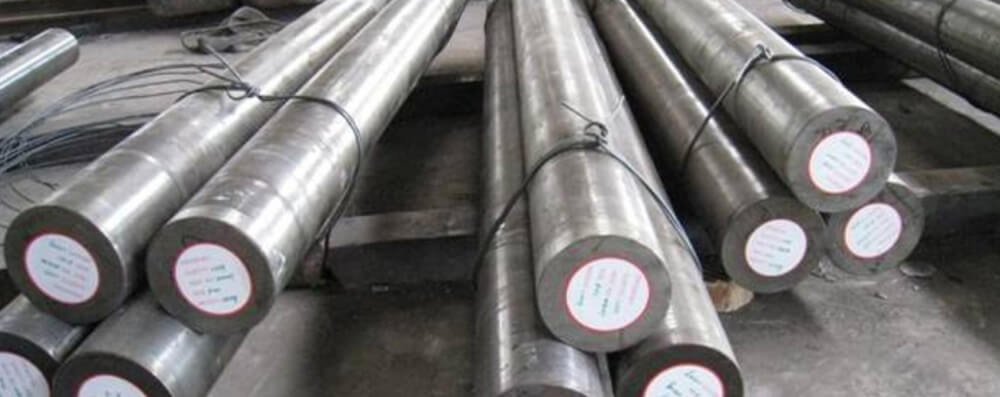Introduction
CW1 (also known as 1.2510 or O1) is a high-quality cold work tool steel that offers an excellent combination of toughness, wear resistance, and dimensional stability. It is a high-carbon, high-chromium tool steel specifically designed for applications involving light to medium duty cold working operations. CW1 is oil-hardening and exhibits minimal distortion during heat treatment, making it a preferred choice for tooling where close dimensional tolerances are critical.
Uses/Applications:
CW1 is ideal for a variety of cold work applications, particularly where dimensional precision and resistance to wear are required. Common applications include:
- Punches
- Dies for blanking and forming
- Broaches
- Thread rolling dies
- Knives and cutting tools
- Gauges
- Bushings
- Shear blades
- Industrial knives
- Tools for wood, plastic, and light metal forming
Properties of the Grade:
- High surface hardness after heat treatment
- Excellent wear resistance
- Good toughness
- High dimensional stability during hardening and tempering
- Oil hardening with minimal distortion
- Good machinability in annealed condition
- Suitable for precision tooling and dies
Chemical Composition:
| Element | Content (%) |
| Carbon (C) | 0.90 – 1.05 |
| Chromium (Cr) | 0.40 – 0.60 |
| Manganese (Mn) | 1.00 – 1.20 |
| Silicon (Si) | 0.15 – 0.35 |
| Tungsten (W) | 0.40 – 0.60 |
| Vanadium (V) | ≤ 0.10 |
This optimized composition provides CW1 with its characteristic hardness, wear resistance, and toughness.
Mechanical Properties:
(Typical after hardening and tempering)
| Property | Typical Value |
| Hardness (Annealed) | ~ 207 HB |
| Hardness (Hardened & Tempered) | 58 – 62 HRC |
| Tensile Strength | ~ 800 – 1000 MPa (Annealed) |
| Compressive Strength | High (exact value varies) |
| Impact Resistance | Good (for a tool steel) |
Physical Properties:
| Property | Typical Value |
| Density | ~ 7.81 g/cm³ |
| Modulus of Elasticity (E) | ~ 210 GPa |
| Thermal Conductivity | ~ 24.6 W/m·K |
| Specific Heat Capacity | ~ 460 J/kg·K |
| Coefficient of Thermal Expansion | ~ 11.4 × 10⁻⁶ /°C (20–100°C) |
Forging:
Forging Temperature Range: 1050°C – 850°C
Procedure:
- Preheat slowly and uniformly.
- Forge at 1050°C, do not forge below 850°C.
- After forging, cool slowly in a furnace or in insulating materials to avoid crack formation.
Forging should always be followed by annealing.
Heat Treatment:
- Annealing:
- Heat uniformly to 740°C – 760°C.
- Hold for several hours.
- Cool slowly in the furnace.
- Resulting hardness: ~ 207 HB.
- Hardening:
- Preheat to 650°C – 700°C.
- Austenitize at 780°C – 820°C.
- Quench in oil to achieve maximum hardness.
- Tempering:
- Temper immediately after quenching.
- Recommended tempering range: 150°C – 200°C.
- Double tempering may be advisable for tools requiring high toughness.
Dimensional Tolerances:
CW1 maintains very good dimensional stability through hardening and tempering. Precision ground bars are available with tight tolerance classes such as:
- h9, h10 for round bars
- Custom tolerances based on application requirements
Machinability:
- Excellent machinability in annealed condition.
- Using high-speed steel (HSS) or carbide-tipped tools is recommended for best results.
- Good surface finish can be achieved.
- Sufficient cooling/lubrication is recommended during machining.
Machinability decreases after hardening and tempering, where grinding may be preferred for finishing operations.
Hardness after tempering: ~ 58 – 62 HRC depending on tempering temperature.
Corrosion Resistance:
- CW1 has limited corrosion resistance compared to stainless steels.
- It may be prone to rusting if exposed to moisture and corrosive environments without protective coatings.
- Storage in a dry environment and use of protective oils or coatings is recommended.
Weldability:
CW1 has poor weldability due to its high carbon content.
Welding is not recommended for hardened material.
If welding is absolutely necessary:
- Preheat to 300°C – 400°C.
- Post-weld annealing and careful heat treatment are required to restore properties.
Available Form:
CW1 cold work tool steel is available in the following forms:
- Round Bars
- Flat Bars
- Square Bars
- Plates
- Forged Blocks
Supplied mostly in the annealed condition for easier machining.
Conclusion:
CW1 (1.2510 / O1 equivalent) cold work tool steel combines high surface hardness, wear resistance, and excellent dimensional stability after heat treatment. These properties make it particularly suited for precision tooling applications involving light to medium mechanical stresses. While offering great machinability and toughness, care must be taken in storage and maintenance due to its limited corrosion resistance. CW1 remains a highly popular choice in industries requiring reliable cold work tools and components.


